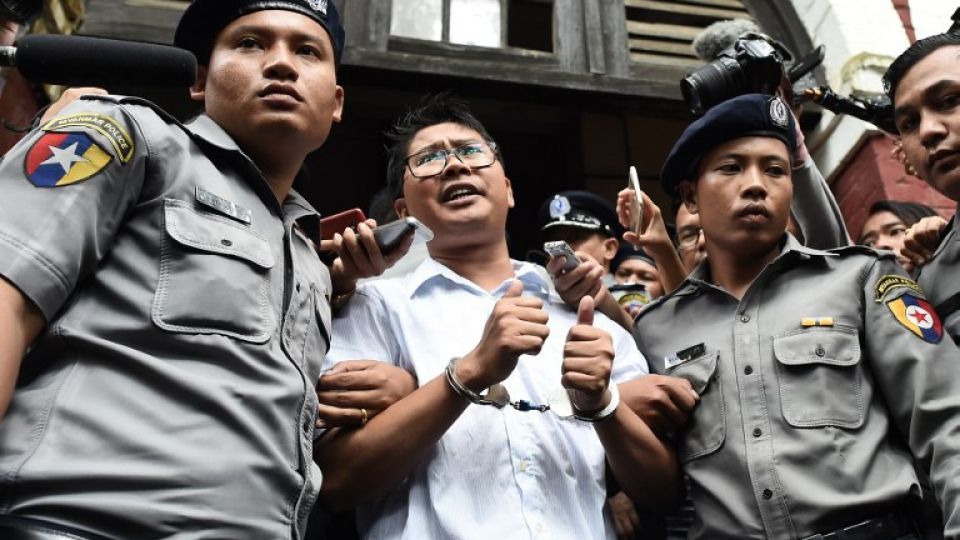September 3, 2018
Two Myanmar journalists were jailed for seven years each on Monday (Sept 3) for breaching the country’s official secrets act.
The decision by the courts was decried by critics as an attempt to punish them for exposing a massacre of Rohingya Muslims in Rakhine state.
The reporters, Wa Lone, 32, and Kyaw Soe Oo, 28, were working for Reuters when they were arrested in December last year (2017) after being invited by policemen to meet at a restaurant in Yangon. The duo say they were framed.
The crime carries a maximum sentence of 14 years jail.
“I have no feeling. I believe in justice and democracy,” Wa Lone said after the verdict.
Just before they were arrested, the pair had been investigating the killing of 10 Rohingya in Inn Din village that took place amid a larger military crackdown in the Rakhine state. In a space of mere weeks from August last year (2017), some 700,000 Rohingya fled to neighbouring Bangladesh – and remain there today in overcrowded camps.
While the military has said it was responding to a terrorist attack and largely denies any wrongdoing, human rights groups say the gang rapes, extra-judicial killings and systematic arson of Rohingya villages point more to ethnic cleansing.\\
The Rohingya Muslims are seen as illegal immigrants in impoverished Rakhine state and draw little sympathy elsewhere in Buddhist majority Myanmar.
Naypyidaw says it is ready to receive returnees, but there have been no official repatriations from Bangladesh so far amid concern that conditions in Myanmar remain inhospitable. In May (2018), President Win Myint pardoned 58 Rohingya returnees who were arrested after they tried to cross back into Myanmar on their own. According to a report published last week (Aug 21) by Human Rights Watch, at least six such Rohingya “returnees” later fled back to Bangladesh out of fears for their safety.
Myanmar’s de facto leader Aung San Suu Kyi chose to focus on terrorism when addressing the topic of Rohingya at a speech in Singapore last month (Aug 21).
“The danger of terrorist activities, which was the initial cause of events leading to the humanitarian crisis in Rakhine, remains real and present today,” she said. “Unless this security challenge is addressed, the risk of inter-communal violence will remain.”
The Rakhine crisis has damaged Ms Suu Kyi’s and Myanmar’s international standing at a time when the fledgling civilian government is struggling to work around a military-crafted Constitution which grants the military control over the key ministries overseeing defence, home affairs and border affairs.
Military commander-in-chief Min Aung Hlaing is not among the Myanmar military and police officials sanctioned by the United States, European Union and Canada for atrocities against the Rohingya.
But a United Nations fact-finding report released last week recommended that the commander-in-chief, together with other senior military officials, be investigated for genocide, and even alleged that the civilian authorities had contributed to the commission of atrocity crimes “through their acts and omissions”.
In June (2018), the UN refugee and development agencies inked a memorandum of understanding with the Myanmar government to help make ground conditions in Rakhine state conducive for a sustainable, voluntary repatriation.
Two months later, the two UN agencies issued a statement urging the Myanmar government to make “tangible progress”, noting it was still waiting for travel authorisation that would allow international staff to be based in Maungdaw in northern Rakhine state and work effectively around the region.
Independent media access remains heavily restricted in northern Rakhine state even though foreign journalists are now being taken on chaperoned trips to selected parts of the ravaged area.


